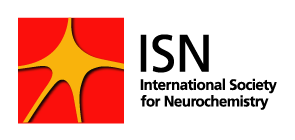Hello and welcome to 2021! New Year, new start?! All suddenly good again? Well, probably not quite yet, but we can definitely feel a slight breeze of positive energy going through the labs. Many of us have had a break, whilst some of us might have worked through the holidays. Maybe because you had a deadline coming up of you just can’t get enough of science.
Something that is very common amongst all labs all over the world is not to do lab meetings over the Christmas period. So, even for those of us who don’t really care about the end of December holidays, for whatever reason, the restart of lab meetings is a good indicator that a new year has begun. Lab meetings can be daunting when you haven’t presented in a while and are now “forced” to sit down and go through all your data again and put them in a sensible order. It is one of those things that most of us are pushing away until the last minute. Afterwards, we often realize that it was actually a relief to get it done. It might have even given you some new ideas about the project because sometimes when you need to explain things to others, which seemed clear to you all along, you might identify the bits that are unclear. Of course, it is not just data presentations. Most labs do regular journal clubs, which is a good (even though not necessarily appreciated) way to make sure you stay up to date with the literature in your field. Reading papers regularly is important for all of us and can remind us of why we like our work and what amazing stuff science is capable of. Nonetheless, it usually gets lost in the daily routine and ever so oft ends up just being a point on the list that gets pushed further and further down until we have to write an introduction to a paper or thesis.
Have you ever looked at your lab meeting itself as an experiment? Not a neurochemical one, more of a social one that is. In fact, lab meetings tell you a lot about the personalities of your colleagues and the culture in the lab. Certain stereotypes appear, like the one that always has a question, the one that just wants it to be over, the one who acts super knowledgeable and just won’t stop talking. What’s the discussion culture like? Is there constructive and in-depth feedback on your work when you present your data? This might not be easy to handle sometimes, depending on how “criticism” is brought forward. In some labs, however, it might be more absorption of information rather than discussing it. Whilst the latter is easier to digest at the time, the long-term benefits are limited. Yes, we know we sound like a PI! Sorry, but there is some truth in that. The whole meeting gets more exciting when you try and analyse these things as you go along. An active discussion in lab meetings, controversial but friendly and respectfully of course, is the best preparation you can get for multiple situations that you will encounter during your career, job interviews, conferences, etc. At least in a lab meeting you (at least in most cases) know the people you are facing, so if you get routine in handling those, strangers like in a panel or at a conference will get easier.
So when you go back to having lab meetings, maybe pay attention to those details just to see what it is like in your lab. Having questions and asking them is always great and will be noticed by colleagues and bosses all over the world. Even if you can’t come up with anything right on the spot, it’s always worth taking notes and showing people that you are listening and maybe you can give them an idea by asking a question later on. After all, an active lab meeting will always be over quicker than an absorbing one… and you are less likely to fall asleep in front of your boss. Give it a go and have a great start into the new science year!
Your YSSC
